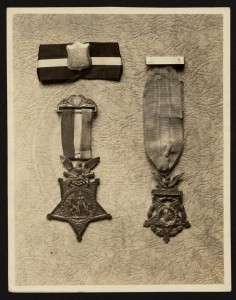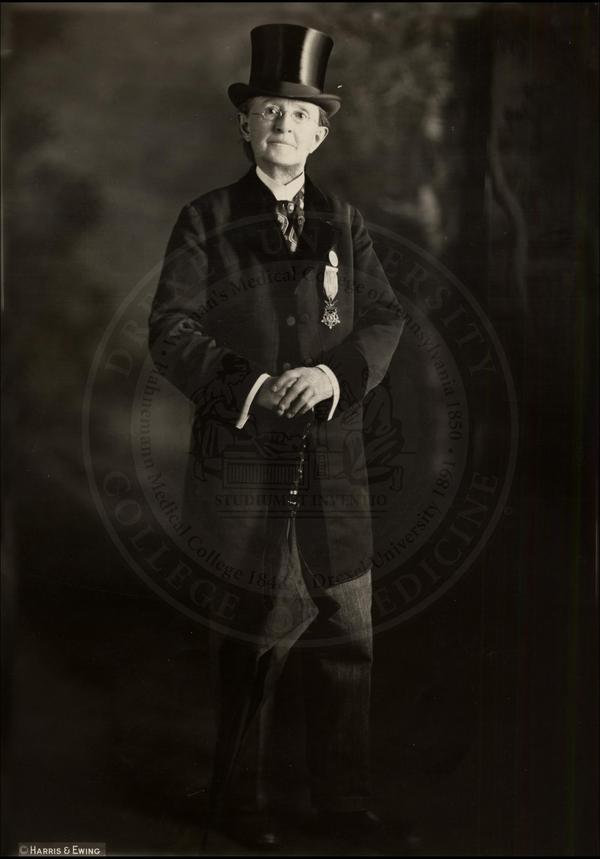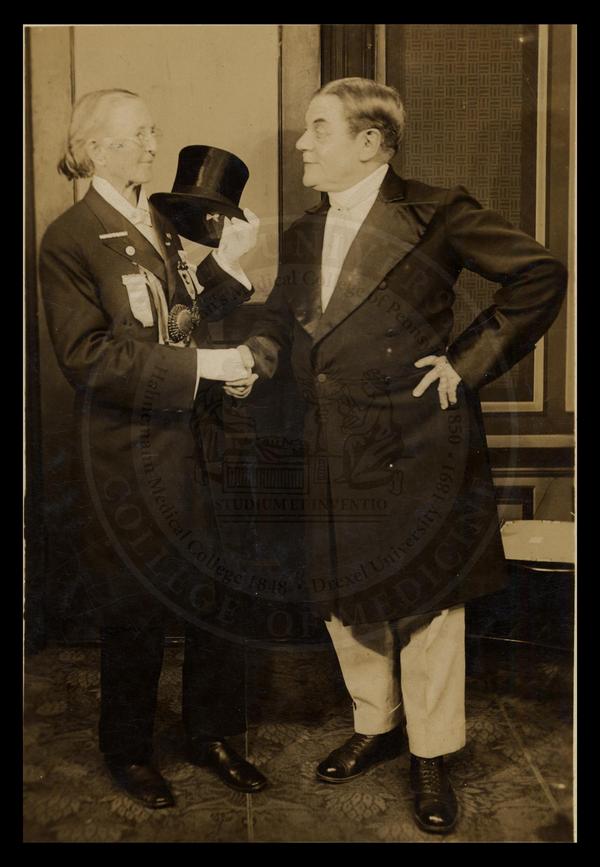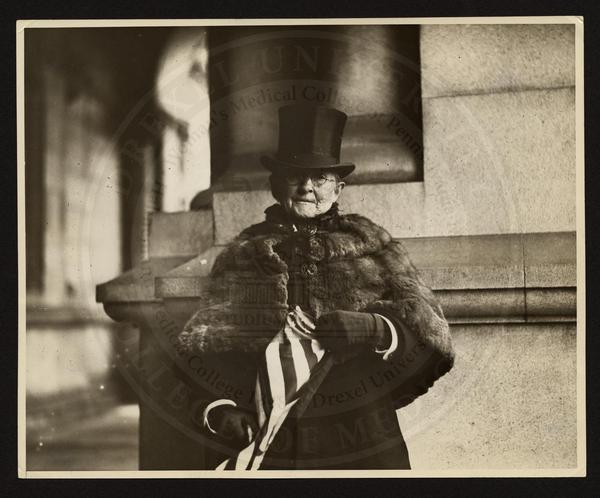Mary Edwards Walker Part II
part II, also from our industrious work study med student and guest blogger Annalyn Gibson
We are back again to finish up our thoughts on Dr. Mary Edwards Walker, picking up where the previous post left off.

These medals were received by Dr. Mary Walker, ca. 1865
As if the accomplishments mentioned previously were not impressive enough for someone in Dr. Walker’s position (attending and graduating medical school as a woman, founding a Relief Association, serving as a contract surgeon for the Union Army), Dr. Mary Walker was the first woman to be awarded the Congressional Medal of Honor for her work during the Civil War. She was the only woman to receive the award throughout the Civil War and would wear it often, as she was (understandably) very proud of it.
Unfortunately for Dr. Walker the medal was revoked in 1917 after a reappraisal of the terms that defined eligibility for the award. Other names besides hers were removed at this time as well. Dr. Walker refused to surrender the award however and wore it for the rest of her life. Happily, in 1977 the award was restored.
After her work in the Civil War, in 1867, Dr. Walker lived with Belva Lockwood for a few years in Washington DC. Ms. Lockwood was a fellow women’s suffrage activist and at this time Dr. Walker began to get more and more politically involved. She had long worn the “bloomer costume”, and eventually moved on to dressing in regular men’s clothing.
In 1866 Dr. Walker was elected to be the president of the National Dress Reform Association, and honestly a better person could not have served. Dr. Walker felt so strongly about the right to wear pants and men’s clothing that she was arrested multiple times for impersonating a man. Many times, she would argue that Congress had granted her a special permission that allowed her to dress as a man but no documentation of the claim can be found.
Unfortunately, Dr. Walker became too eccentric for other women’s suffrage activists and separated from the movement. Dr. Walker held very progressive opinions on marriage and divorce, was tolerant regarding religion, and was also against alcohol and tobacco use (fitting for a physician now isn’t it?). the issue that seemed to have finally severed her from the suffrage movement was that Dr. Walker believed that the Constitution already granted women the right to vote and felt that an Amendment was unnecessary.

Dr. Mary Walker in Washington, 1910

Dr. Mary Walker elegantly dressed and unidentified man, 1910
On a side note, if you are at all interested, Dr. Walker published two texts: a partly autobiographical book Hit was published in 1871 and another book titled Unmasked, or the Science of Immortality was published in 1878.
In 1890 Dr. Mary Walker moved again and spent her remaining life in Oswego, where she was most remembered for her dress and mannerisms. When Dr. Walker passed she was buried, fittingly, in a black suit in her family plot.

Dr. Mary Walker, 1912